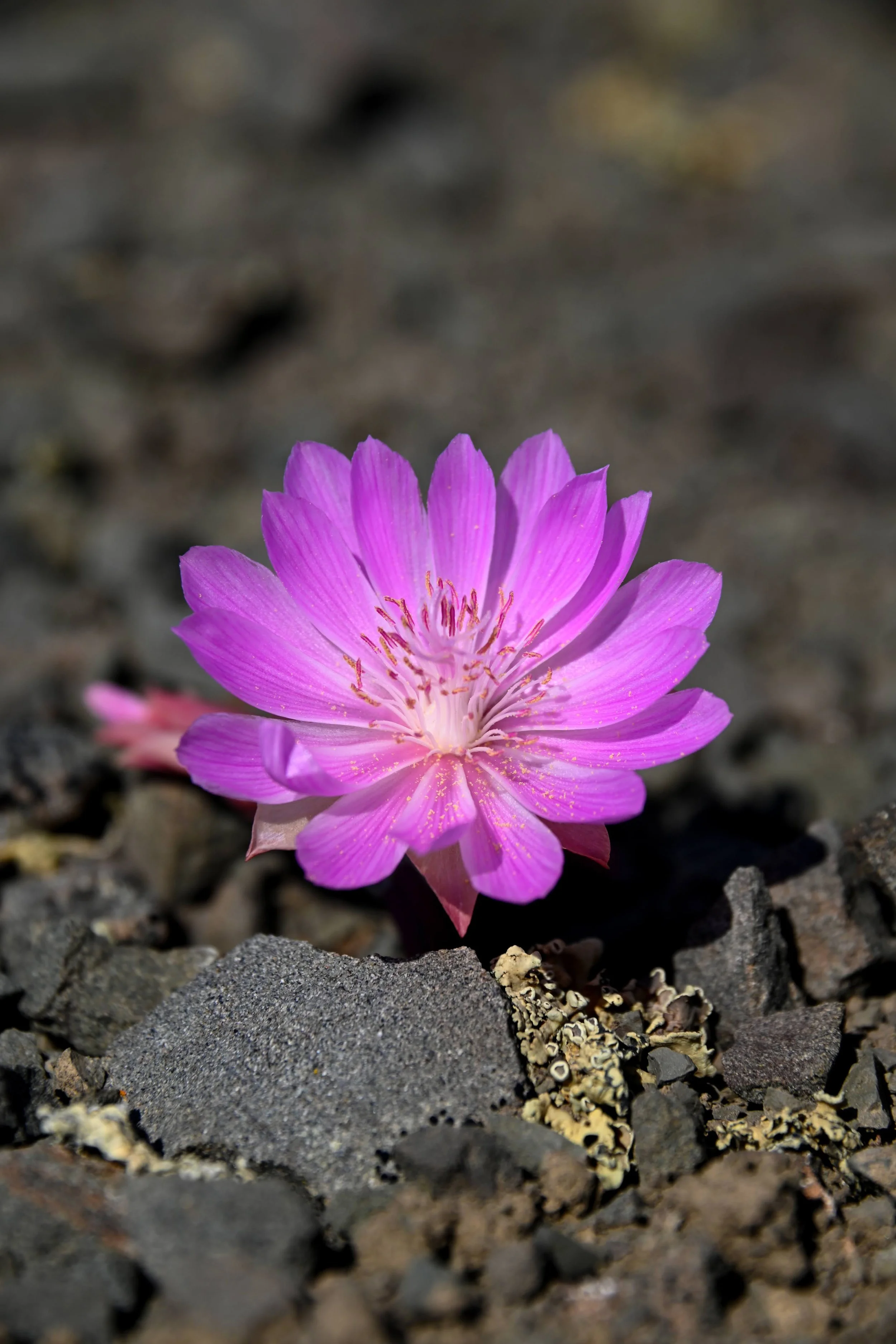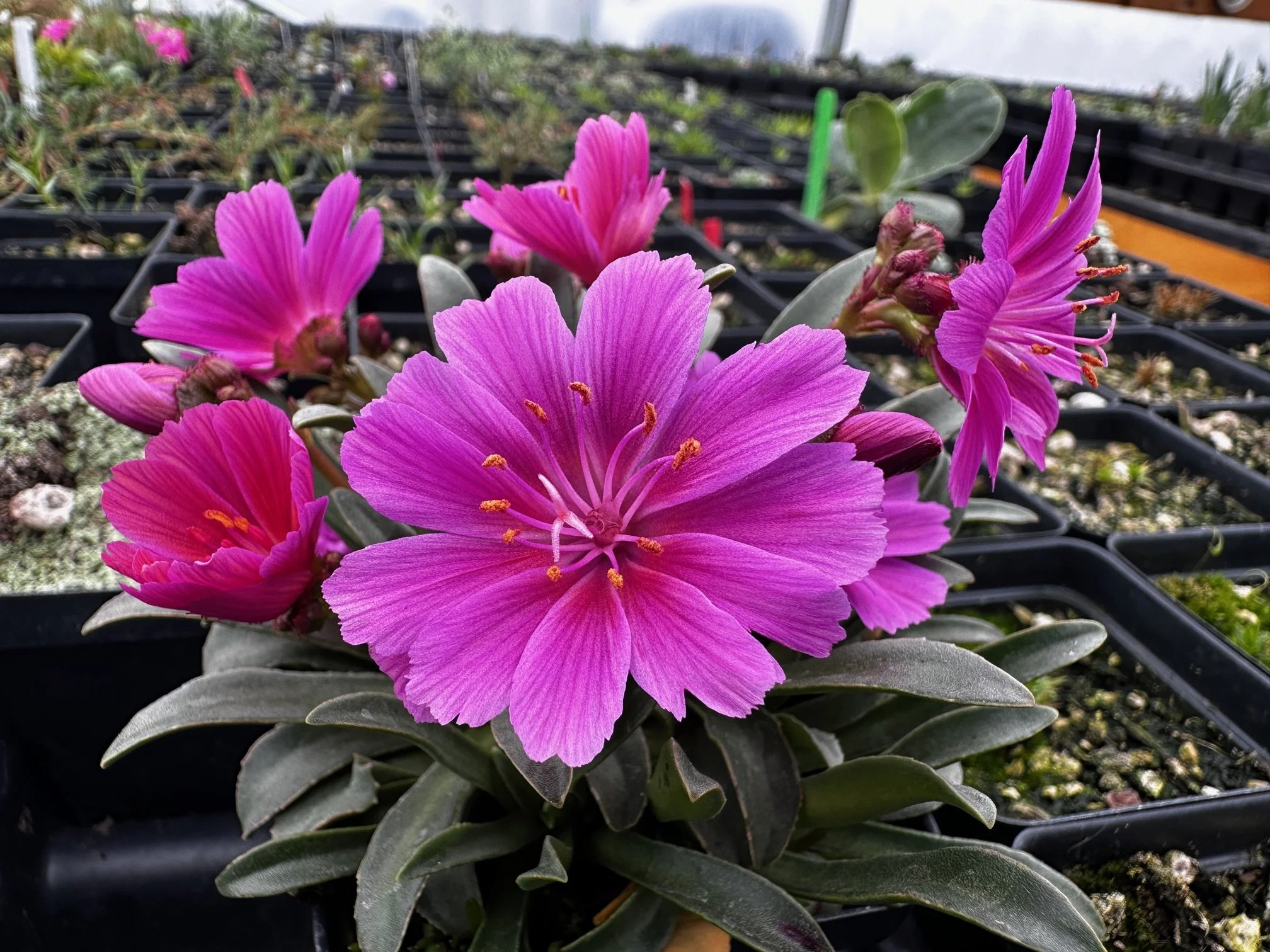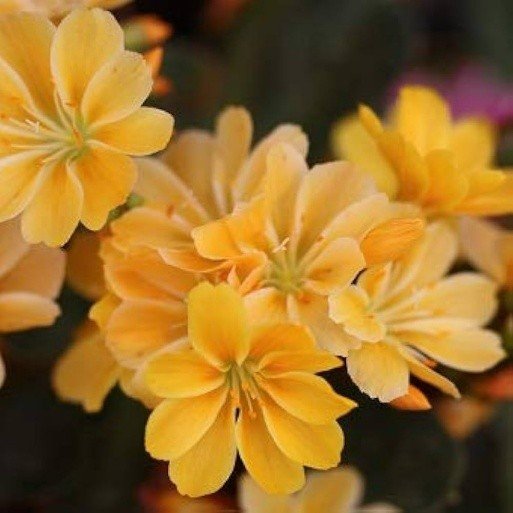

Lewisia rediviva
Alplains collection from Carbon Co., WY, 8875ft, 2706m. A high elevation population here with large, deep pink blossoms growing on gentle W-facing slopes. I have found them to be variable in the depth of that pink from seed, with some more faded and even whites showing up in the variable genetics.
Lewisia rediviva is the state flower of Montana and one of North America’s most iconic native alpines, Lewisia rediviva embodies both resilience and beauty. Native to the dry mountain slopes and sagebrush lands of the interior West, it lies dormant most of the year as a fleshy root, then bursts into life in late spring with luminous, satiny flowers in shades of pale pink to rose or white—often larger than the plant itself.
Its scientific name, rediviva, meaning “brought back to life,” comes from a remarkable event in 1806. During the Lewis and Clark Expedition, Meriwether Lewis collected a specimen of this plant, which later bloomed again on its herbarium sheet after drying and almost a year later being glued to a piece of paper—astonishing botanists and earning the species its name and enduring legend.
In the rock garden, Lewisia rediviva thrives in the driest, sunniest spots with sharp drainage—tucked into gravelly crevices or lean scree where water quickly runs off. Once established, it is nearly immortal, requiring neglect more than care.
A plant of western sunlight and enduring spirit, Lewisia rediviva is both a horticultural gem and a living piece of American history. Hardy to USDA Zone 4.
These are coming out of summer dormancy now and just beginning to show foliage.
Alplains collection from Carbon Co., WY, 8875ft, 2706m. A high elevation population here with large, deep pink blossoms growing on gentle W-facing slopes. I have found them to be variable in the depth of that pink from seed, with some more faded and even whites showing up in the variable genetics.
Lewisia rediviva is the state flower of Montana and one of North America’s most iconic native alpines, Lewisia rediviva embodies both resilience and beauty. Native to the dry mountain slopes and sagebrush lands of the interior West, it lies dormant most of the year as a fleshy root, then bursts into life in late spring with luminous, satiny flowers in shades of pale pink to rose or white—often larger than the plant itself.
Its scientific name, rediviva, meaning “brought back to life,” comes from a remarkable event in 1806. During the Lewis and Clark Expedition, Meriwether Lewis collected a specimen of this plant, which later bloomed again on its herbarium sheet after drying and almost a year later being glued to a piece of paper—astonishing botanists and earning the species its name and enduring legend.
In the rock garden, Lewisia rediviva thrives in the driest, sunniest spots with sharp drainage—tucked into gravelly crevices or lean scree where water quickly runs off. Once established, it is nearly immortal, requiring neglect more than care.
A plant of western sunlight and enduring spirit, Lewisia rediviva is both a horticultural gem and a living piece of American history. Hardy to USDA Zone 4.
These are coming out of summer dormancy now and just beginning to show foliage.





